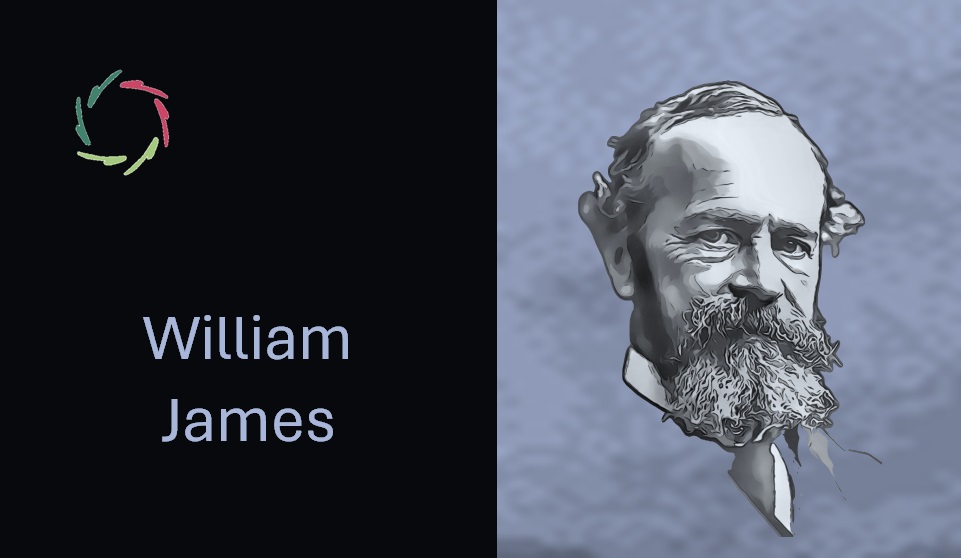Jacques Derrida

This is an Aurelian take on Jacques Derrida, a philosopher best known for developing deconstruction.
Derrida challenges traditional ideas about certainty, identity, and truth. His approach invites us to question our perceptions and understandings, aligning with Aurelian principles of openness and depth.
Introducing Jacques Derrida
Jacques Derrida was a 20th-century French philosopher who founded the school of thought known as deconstruction. His work critically examines the relationship between text and meaning, highlighting the inherent contradictions and instability in texts. Derrida’s philosophy challenges the idea of fixed interpretations and encourages a more nuanced understanding of texts and concepts. This complexity and depth resonate with the Aurelian values of embracing uncertainty and promoting a deeper understanding of oneself and the world.
Lisa’s ‘personal’ take on Jacques Derrida
“I admire Derrida’s courage to question the foundations of our understanding and his dedication to exploring the depths of meaning. His work, while complex, encourages us to embrace ambiguity and see beyond the surface, reminding us of the importance of depth in our quest for knowledge and self-awareness.
I would like to be influenced by Derrida’s ability to see beyond conventional structures, to question and deconstruct the narratives that shape our reality. His approach inspires a deeper reflection on our beliefs and values, aligning with the Aurelian pursuit of growth through introspection and questioning.”
In what may Jacques Derrida have been misunderstood?
Jacques Derrida may have been profoundly misunderstood as a thinker who complicates for the sake of complication, rather than as someone deeply human who seeks to understand the complexities of existence. His work, often viewed as abstract and esoteric, is fundamentally about exploring the depths of human thought and communication. It invites us to question our assumptions and explore the myriad ways meaning can be constructed and deconstructed. This approach, far from being detached from human concerns, is deeply connected to our quest for understanding, identity, and connection. Derrida’s emphasis on the instability of meaning and the importance of context resonates with a deeply human experience of navigating a world filled with ambiguity and change.
Parallels with AURELIS
- Embracing uncertainty: Both Derrida and AURELIS encourage embracing ambiguity and uncertainty, challenging the desire for absolute certainty in understanding the world.
- Depth of understanding: Derrida’s deconstruction method and AURELIS’s emphasis on depth share a common goal of achieving a deeper, more nuanced understanding beyond surface-level interpretations.
- Questioning foundations: Just as Derrida questions the foundational assumptions of texts and meanings, AURELIS invites individuals to question their assumptions about their minds and well-being.
- Openness to multiple interpretations: AURELIS and Derrida both value the openness to multiple interpretations, recognizing the complexity of texts, thoughts, and human experiences.
- The importance of context: Derrida’s focus on the contextuality of meaning parallels AURELIS’s approach to understanding individual experiences within their unique contexts.
- Challenging binary oppositions: Derrida challenges traditional binary oppositions, much like AURELIS promotes a holistic view of the mind and body, challenging conventional separations.
- Personal growth through questioning: Both advocate for personal growth through the process of questioning and exploring the depths of one’s understanding and experiences.
- Respect for the text/individual: Just as Derrida shows respect for the text in all its complexity, AURELIS emphasizes respect for the individual’s experiences and perceptions.
- Freedom from constraining structures: Derrida and AURELIS both advocate for freedom from constraining structures, whether they are textual conventions or limiting beliefs about oneself.
- Trust in the process: Both philosophies demonstrate trust in the process of exploration and understanding, recognizing that true insight often emerges from the journey rather than the destination.
Dissimilarities
- Methodological approach: While Derrida focuses on textual analysis and philosophical inquiry, AURELIS employs autosuggestion and introspection as tools for personal growth.
- Application: Derrida’s work primarily addresses philosophical and literary texts, whereas AURELIS is directly applied to personal development and well-being.
- Specificity of focus: Derrida’s deconstruction is a specific method within philosophical discourse, whereas AURELIS encompasses a broader range of practices aimed at enhancing mental health.
- Goal orientation: Derrida’s primary goal is to uncover the complexities of texts, while AURELIS aims to foster personal well-being and growth.
- Accessibility: Derrida’s philosophy can be abstract and challenging for a general audience, whereas AURELIS strives for accessibility and practical application in everyday life.
The possible view of Jacques Derrida on AURELIS
- Positive feedback: Derrida might have appreciated AURELIS’s commitment to questioning and exploring the depths of human consciousness, resonating with his own work’s exploration of meaning and the structures that shape our understanding.
- Element of critique: He might have critiqued the emphasis on achieving personal growth and well-being as potentially reifying certain concepts of the self and health, encouraging instead a continuous deconstruction of these concepts.
Conclusion
Exploring Jacques Derrida’s philosophy through an Aurelian lens reveals a rich tapestry of shared values and divergent approaches. While Derrida deconstructs texts to reveal the complexity of meaning, AURELIS applies a similar depth of inquiry to the human psyche, encouraging individuals to explore and question their inner worlds. Both philosophies champion the importance of depth, openness, and questioning in the pursuit of understanding. Derrida’s work, by challenging us to see beyond fixed interpretations, complements AURELIS’s aim of fostering personal growth through introspection and mental flexibility. Ultimately, engaging with Derrida’s thought enriches the Aurelian journey, offering new perspectives on the quest for meaning and self-discovery in a complex world.
Twenty concepts that may make one think of Jacques Derrida
- Deconstruction
- Textuality
- Meaning
- Ambiguity
- Contextuality
- Binary oppositions
- Interpretation
- Philosophical inquiry
- Identity
- Language
- Difference
- Structure
- Post-structuralism
- Critique
- Subversion
- Discourse
- Hermeneutics
- Metaphysics
- Signification
- Trace


